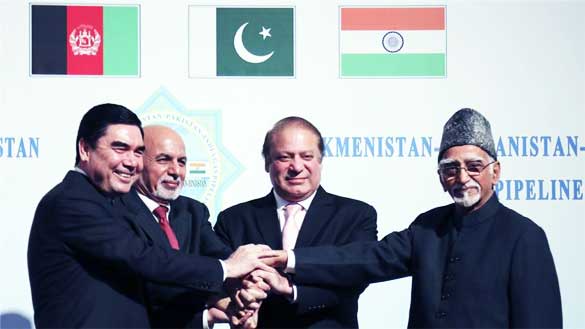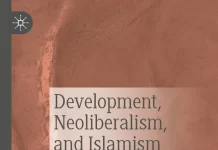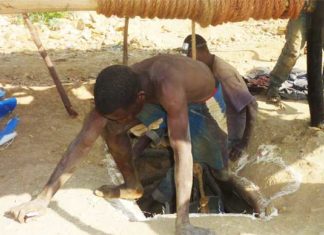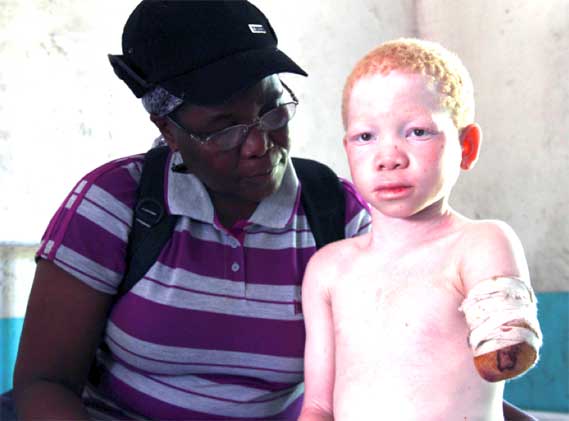Afghanistan’s Worsening Security Situation
Afghanistan’s more than a decade long experience with development reveals that infrastructure projects, such as roads and bridges, in volatile regions were not immune to devastating attacks by the insurgents. Exploiting the weak negotiating position of the past and present government, and the ensuing coordination failures within the state institutions, the armed groups have extorted government money in exchange for the release of project and government workers. In some instances, the insurgent forces also killed many kidnapped workers.
See Also: The Fergana Valley – A Region of ‘Dormant-Violence’ or ‘Fresh Opportunities’?
The past 13 years of experience of development projects highlights one thing for sure: whenever there are development projects specially in volatile areas, they have faced dire consequence of paying extortion money to armed groups to set free their workers. And still a number of engineers, NGO and aid workers have been kidnapped and killed.

The Long War Journal which has been tracking the Taliban’s attempts to gain control of territory since NATO ended its military mission in Afghanistan in June 2014 claimed, in a report on 5 October 2015, that out of 398 districts in 34 provinces, 29 districts are under Taliban control in Afghanistan. And another 36 districts are contested while 335 districts are either under government control, or their status cannot be determined. Some of the districts under control of the Taliban are located in the three southern provinces of Afghanistan, Helmand, Kandahar and Farah. Recently a government official in the Helmand province raised deep concerns over the worsening security situation. Head of Helmand’s provincial council Karim Atal told Tolo News that the “situation is very bad in the Greshk district, and the government is weaker in the area, therefore a solution must be found otherwise TAPI cannot be Implemented in Greshk”.
This comes at a time when the Helmand deputy governor pleaded via social network to Ashraf Ghani to save Helmand. “Your Excellency, Facebook is not the right forum for speaking with you, but as my voice hasn’t been heard by you I don’t know what else to do. Please save Helmand from tragedy. Ignore those liars who are telling you that Helmand is secure, in the past few days about 90 Afghan forces have died.” But despite the plea, there was no immediate reaction from Ghani’s office. The defence ministry also rejected the troop death claims and denied that Helmand was at risk of falling to the Taliban.
Recently the Taliban claimed that one of the provinces where they are continuously taking over territory in this freezing cold is Helmand. They have managed to completely control Musa Kala and Nawzad districts of Helmand. Earlier they had also overrun the district of Khani Sheen along with its administration centre and military bases. The inability of the Afghan Forces was confirmed by the deputy governor of Helmand (Rasoulyar) who pleaded to President Ashraf Ghani in an open letter through a social media post that if immediate action were not undertaken the entire province of Helmand would be lost. He also admitted that over the past 24 hours over 90 army and police personnel had been killed and dozens wounded in the clashes raging in Gerishk and Sangin districts. On 23 December 2015 the district of Sangin in southern Helmand province also fell to the Taliban for the first time in 14 years.
TAPI’s Bleak Future?
As Kabul is going through its period of darkness due to blowing up of the electricity pylons in Baghlan province, with the increasing demand for gas in India and Pakistan will they endure to remain in a period of uncertainty? If the pipeline is blown up, will they wait till Afghan Forces secure the area so the pipeline could be restored? Although last month, Daud Shah Saba, the Afghan Minister for Mines and Petroleum, told Upper House in Kabul that a 7,000-member security force will be raised to guard the gas pipeline project. Will the 7000 security forces be able to patrol the 700 km of pipeline through one of the most unsecure and dangerous parts of Afghanistan?
TAPI is not the only way to fulfil Pakistan and India’s hunger for Energy. On one hand, Iran, Pakistan, India gas pipeline has not been forgotten. Whereas, on the other hand, with the relaxation of economic sanctions on Iran, India is hopeful about the $4.5 billion project to pump Iranian natural gas to India, envisioning the export of 31.5 million cubic meters of natural gas per day via an undersea pipeline originating from Chabahar Port in south-eastern Iran, traveling through the Sea of Oman to Ras al-Jafan on the Omani coast, and after traversing the Arabian Sea, ending at Porbandar in South Gujarat in India. The project, known as the Middle East to India Deep water Pipeline (MEIDP), is scheduled to be completed by 2022.
Subodh Kumar Jain, Director of South Asia Gas Enterprise Pvt. Ltd., which came up with the idea of the 1,200- to 1,300-kilometer underwater pipeline project, says that that’s the best energy option for India.
Again, TAPI’s future depends on the overall security situation in Afghanistan and whether it deteriorates in the future.
UNAMA, in a recently published report, documented the highest civilian casualties in 2015 exceeding the previous recorded level of casualties in 2014. The United Nations also says that 2015 may have been the worst year for conflict-induced displacement in Afghanistan since 2002. U.S. forces-Afghanistan (USFOR-A) and Resolute Support (RS) commander General John F. Campbell says, “if we do not make deliberate, measured adjustments, 2016 is at risk of being no better, and possibly worse than 2015.”
The awfully precarious situation of the ANDSF in Helmand province in southern Afghanistan is another worrying development. Along with the Taliban marching up attacks this winter, long after the period in which fighting has typically declined, other groups, such as Islamic State of Iraq and the Levant-Khorasan Province (ISIL-K) have also expanded their presence in Afghanistan.
The biggest of all this will be the future of the TAPI project, as the pipeline project passes through the heart of the Taliban area, a place where warring parties are known to hold up businesses for payoff to fund their war.
In the pipeline world this usually involves “insurance” payoffs like the Taliban has already asked the telecom companies in the form of a 10% protection tax. And once the militant groups take the proposed pipeline as a hostage, the ransom they ask is not going to be an easy one.
More from the Author: Gang Rape Cases in Afghanistan: Healing the Broken Bone










